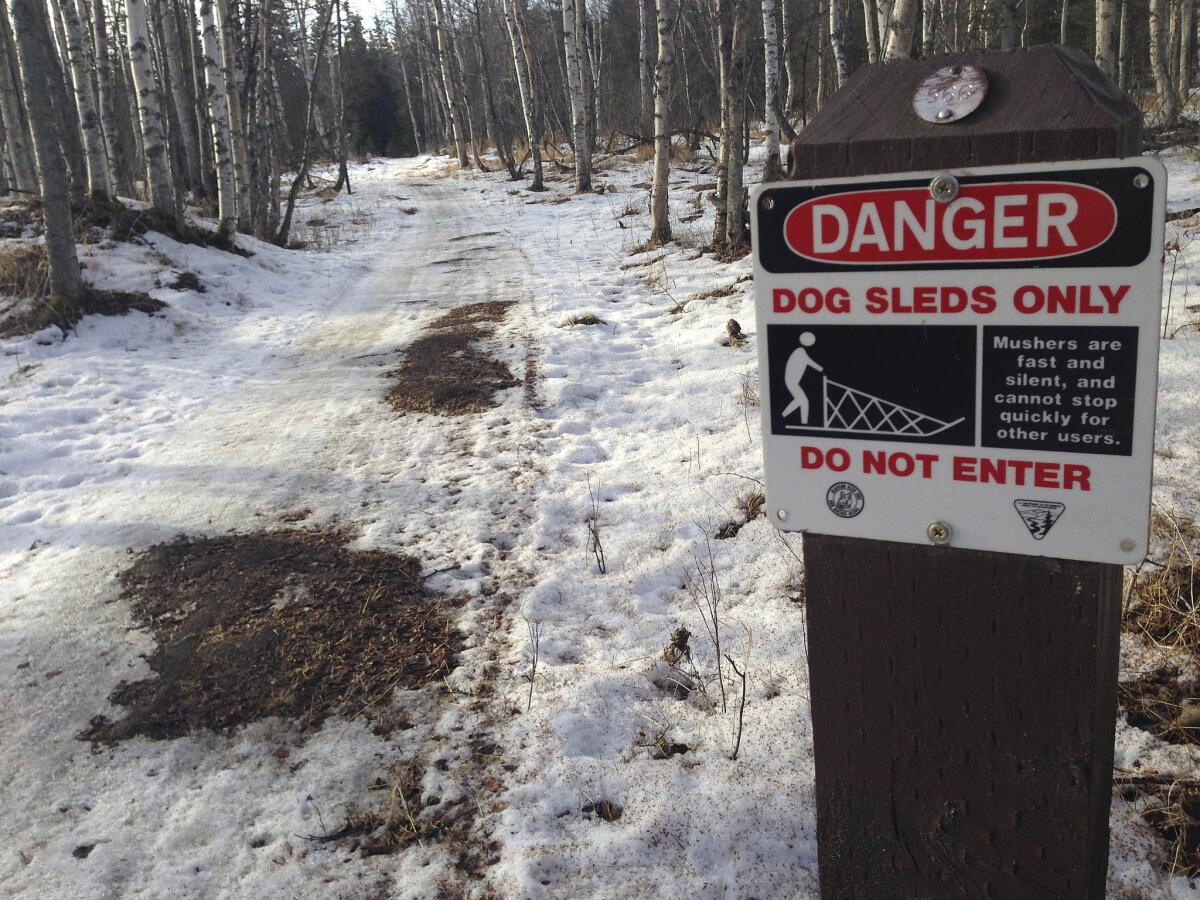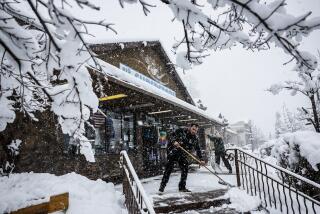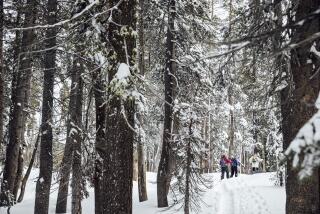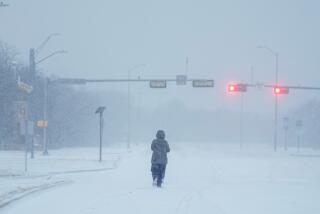Winter of extremes goes on: Not enough snow in Alaska, too much in East

With only two weeks left to go, the winter of extremes is not subsiding: The Iditarod Great Sled Race is moving 300 miles from its traditional start point in search of snow in Alaska. After record snowfall, Kentucky is bracing for some of the worst flooding in years.
And in Boston -- people have actually sent tweets to the National Weather Service anxious to know if the snowfall record has been broken yet.
“There’s a good chunk of people who say, ‘Well, we’ve been through all of this, we’re only 2 inches away, let’s have some kind of reward,’” said Rebecca Gould, meteorologist with the service in Boston.
After two days of heavy snowfall that closed highways and stranded hundreds of drivers, eastern Kentucky is under flood watch because of swollen rivers, said Tony Edwards, meteorologist with the National Weather Service in Jackson, Ky.
Intense rainfall Wednesday followed by snow melt has affected several rivers, particularly the Cumberland River near Pineville, Ky., about 15 miles from the Tennessee border.
The western U.S. was warmer than average this winter, according to a weather report released Friday by the National Oceanic and Atmospheric Administration. Eight states had a February that ranked among their 10 warmest. Arizona, California, Utah and Washington each had their warmest February on record.
The lack of snow forced Iditarod race officials to move the event’s start location from its normal site in Willows, Alaska, to Fairbanks, about 289 miles away. The famous sled dog race will start with a ceremonial run in Anchorage on Saturday. The restart of the race is generally the day after, but officials this year have changed the restart date to Monday to give mushers a chance to travel. This is the second time in the race’s history that the restart has moved to Fairbanks because of poor snow conditions -- the first was in 2003.
Four thousand miles away, Boston is only 2 inches from breaking its all-time snowfall record. Despite the constant storms, some residents are eager to see the city break the record, even if it means more winter misery.
Dozens of people have tweeted at the National Weather Service in Boston, hoping to hear news of record-breaking snowfall numbers.
There could be some snow showers this weekend, but it might not push Boston’s current snowfall total of 105.7 inches past the record of 107.6 inches, Gould said. If not this weekend, there’s another chance of snow showers Monday.
“It’ll be a tossup,” Gould said.
Twenty-three states had a top-10 coldest February on record, according to the NOAA report. While no state had a record cold in February, nine states had their second-coldest February.
Several cities in the Northeast had their coldest month of any on record. One notable winner was Buffalo, N.Y., where the monthly average temperature was 10.9 degrees, which beat a record low of 11.6 degrees from 1934.
Meanwhile, the Los Angeles region is forecast to be in the 80s this weekend.
For more national news, follow @smasunaga.
More to Read
Start your day right
Sign up for Essential California for news, features and recommendations from the L.A. Times and beyond in your inbox six days a week.
You may occasionally receive promotional content from the Los Angeles Times.






